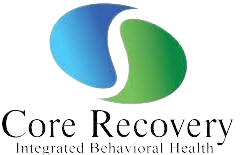Anxiety is more common than most people realize, and it often occurs concurrently with those also suffering from addiction. While panic attacks are a common form of anxiety, they are not the most common. In this article, we’ll discuss what generalized anxiety disorder is, the affects of addiction on anxiety, and the treatment options available.
What is Generalized Anxiety Disorder?
While panic attacks are associated with anxiety in the public’s mind, it’s possible to have anxiety without severe attacks. Often, those with generalized anxiety disorder dismiss their anxiety as simply worrying too much. So how does someone know if they have generalized anxiety disorder?
Someone with generalized anxiety disorder is most likely feeling a number of symptoms, including irritability, restlessness, fatigue, extreme amounts of worry, problems concentrating, and difficulty sleeping. While many of these symptoms by themselves are not necessarily cause for worry, if you are experiencing multiple symptoms or the symptoms persist, consider speaking with a professional for help.
Co-occurring GAD and Addictions
Some forms of mild anxiety disorders are rather common in the United States, with about one in five people estimated to suffer from anxiety. However, those with anxiety are two to three times more likely to suffer from addictions than those without. While there are no studies to show the exact reason why this is, many mental health professionals suspect the addiction begins with self-medicating for anxiety. If there is a family history of alcohol or substance abuse disorder, the risk increases further.
While self-medicating with drugs or alcohol may seem like an easy solution to curb anxiety symptoms, non-prescribed drugs and alcohol have been known to exacerbate anxiety. Those with a dual diagnosis of generalized anxiety disorder and substance abuse disorder are more likely to experience difficulty completing daily tasks, have more conflict with their friends and family, and have difficulty concentrating throughout the day.
In some cases, addictions can cause an onset of anxiety symptoms that weren’t present before drug or alcohol use.
Treatment Options for GAD and Addictions
Seeking treatment for mental health concerns like anxiety, depression, PTSD, and addictions can make a big difference in your quality of life moving forward. A large-scale study found that half of those diagnosed with Generalized Anxiety Disorder did not receive treatment, and those that did only sought treatment after two years of trying to manage symptoms on their own.
Whether you’re experiencing anxiety symptoms due to your struggle with addictions, or you now struggle with addictions after self-medicating due to anxiety symptoms, a comprehensive treatment, such as a PHP or IOP program, will help you learn new ways to manage your anxiety symptoms and addictions.
Located in North Phoenix, Arizona, Core Recovery offers several different options for seeking treatment for addictions and co-occurring diagnoses like generalized anxiety disorder. The most involved treatment option is our Partial Hospitalization Program (PHP). This program allows patients to receive intensive treatment through group therapy, individual therapy, and more, all while returning home to their families at night. The Intensive Outpatient Program (IOP) is designed to allow patients to work or go to school. The IOP hours averages 15 hours per week and includes individual, family and group therapy as well as creative expressions and medication managment.
To discover which program is right for you, check out this article comparing the difference between them, then give us a call to discuss how our clinic can help you.






 In CA By O360®
In CA By O360®